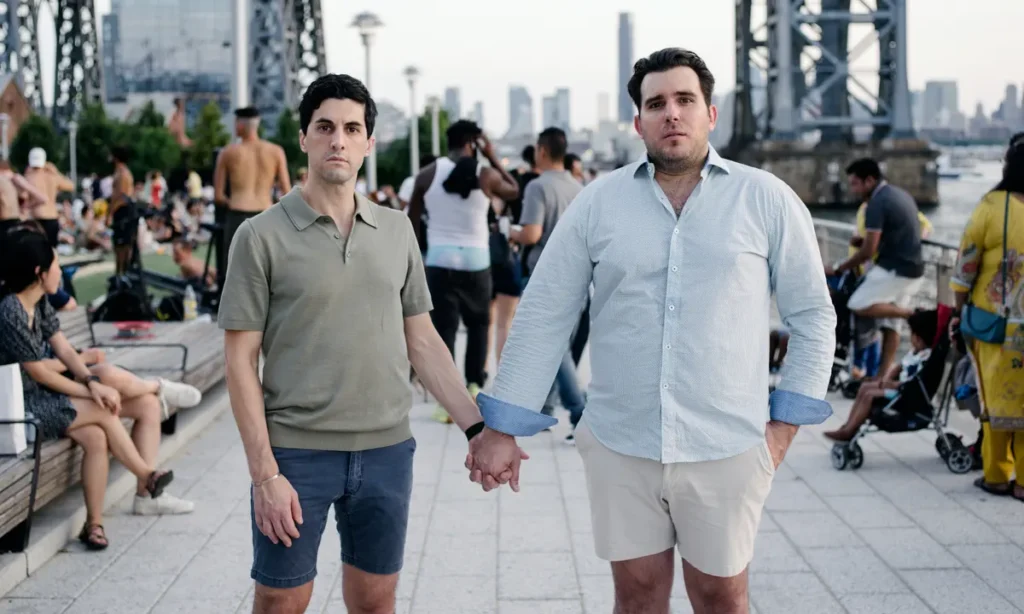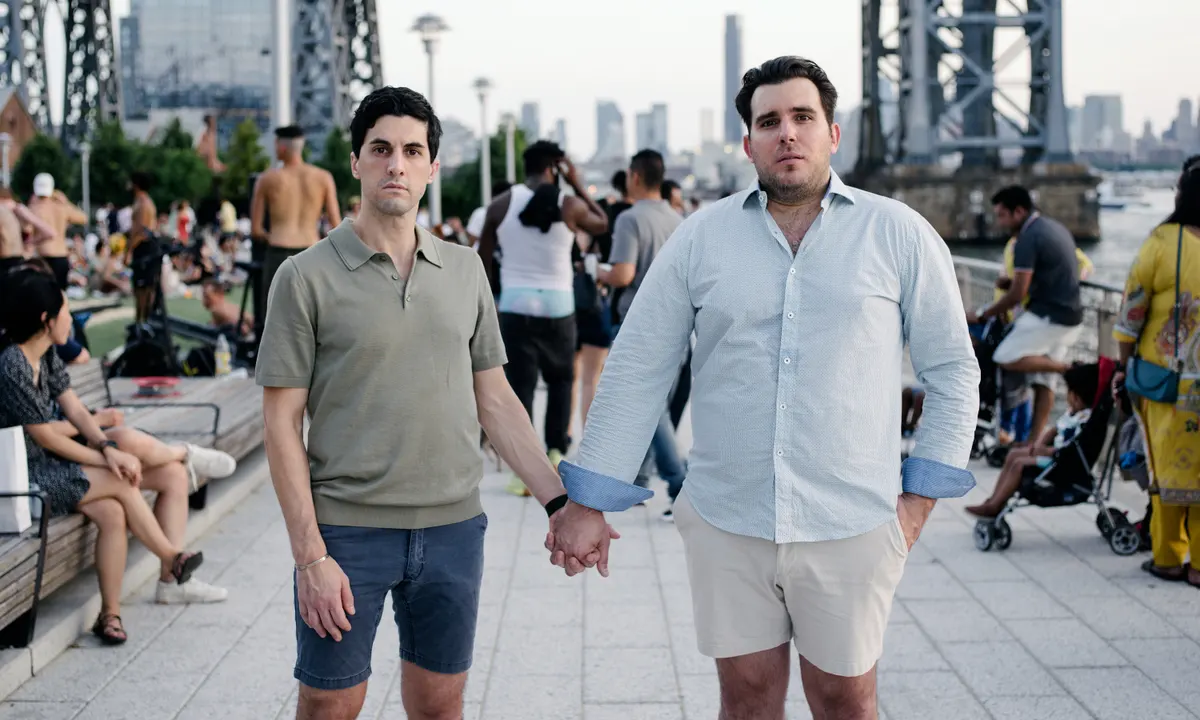“IVF coverage lawsuit, LGBTQ+ healthcare rights, gay couple IVF, New York City health policy, equality in healthcare, reproductive rights, surrogate parenting rights, LGBTQ+ discrimination, healthcare lawsuit, IVF for gay couples”
“In a groundbreaking legal move, Corey Briskin and Nicholas Maggipinto have filed a class-action lawsuit against New York City, challenging the exclusion of gay couples from IVF coverage under city health plans. This article explores their decade-long journey towards parenthood, the financial and emotional challenges faced, and the broader implications for LGBTQ+ rights and healthcare equality.”

In a landmark case, a gay couple, Corey Briskin and Nicholas Maggipinto, has initiated a class-action lawsuit against New York City, challenging a policy that denies in vitro fertilization (IVF) benefits to gay men under the city’s health plan. This lawsuit, the first of its kind, shines a spotlight on the intersection of LGBTQ+ rights and healthcare, as Briskin and Maggipinto fight for equal treatment under the law.
A Decade of Hope and Planning
Corey Briskin and Nicholas Maggipinto’s journey began over a decade ago. Their dream of starting a family led them to explore IVF, a process where an egg and sperm are combined in a laboratory setting. The next step in their plan involved finding a surrogate who would carry and give birth to their child. However, their aspirations were halted in 2017 when Briskin, then an assistant district attorney in Manhattan, discovered that the city’s health plan excluded IVF coverage for gay couples.
The Basis of the Lawsuit
The lawsuit filed by Briskin and Maggipinto alleges that New York City’s health insurance policy is discriminatory. While it offers IVF coverage for single women and heterosexual and lesbian couples, it conspicuously leaves out male couples, effectively sidelining thousands of gay men who wish to become parents through IVF. Briskin articulates their position clearly: “We are entitled to equal treatment under the law.” This legal action seeks not only recognition but also retroactive compensation for those who have been denied benefits, and an amendment to the policy to include gay men.
City’s Response and Public Implications
Upon review of the lawsuit, a spokesperson from City Hall stated that Mayor Eric Adams’ administration is committed to supporting the rights of LGBTQ+ New Yorkers, ensuring they have access to necessary healthcare services. This statement, while affirming, also highlights the broader implications of the lawsuit. It is not just about a single couple’s rights but touches on the wider issue of how inclusive health policies should be structured in a diverse society.
Financial and Emotional Strain
The financial aspect of the IVF and surrogacy journey is substantial. Briskin and Maggipinto estimate the cost of the IVF process at around $100,000, with an additional $165,000 for surrogacy. These figures illustrate the significant financial burden that comes with private reproductive technologies, especially when devoid of insurance coverage. Beyond finances, the emotional toll on couples who face such barriers is profound, turning what should be a joyous venture into a battleground for basic rights.
Looking Ahead: A Family in Waiting
Despite the legal and financial hurdles, Briskin and Maggipinto remain hopeful. They have already received donated embryos, which are ready for implantation in a surrogate. Their goal is to welcome a child within the next year, a testament to their resilience and determination. Their fight for justice and equality is emblematic of the broader struggle faced by many in the LGBTQ+ community, reflecting ongoing challenges in accessing equitable healthcare.
The Ripple Effect of the Case
This lawsuit could set a precedent for how health benefits are administered across the United States, especially concerning reproductive technologies and LGBTQ+ rights. A favorable outcome for Briskin and Maggipinto could pave the way for more inclusive health coverage policies, benefiting not only gay couples but also other marginalized groups within the LGBTQ+ community.
Conclusion: A Call for Inclusivity and Equality
The courage shown by Corey Briskin and Nicholas Maggipinto in challenging systemic inequalities highlights a critical aspect of civil rights—access to healthcare without discrimination. Their case is a poignant reminder of the ongoing struggle for equality faced by the LGBTQ+ community and serves as a call to action for policymakers, healthcare providers, and society at large to reevaluate and reform discriminatory practices that limit access to health services based on sexual orientation or gender identity. As this case progresses, it will undoubtedly continue to inspire and influence the national conversation on healthcare equity and LGBTQ+ rights.
Read More-
